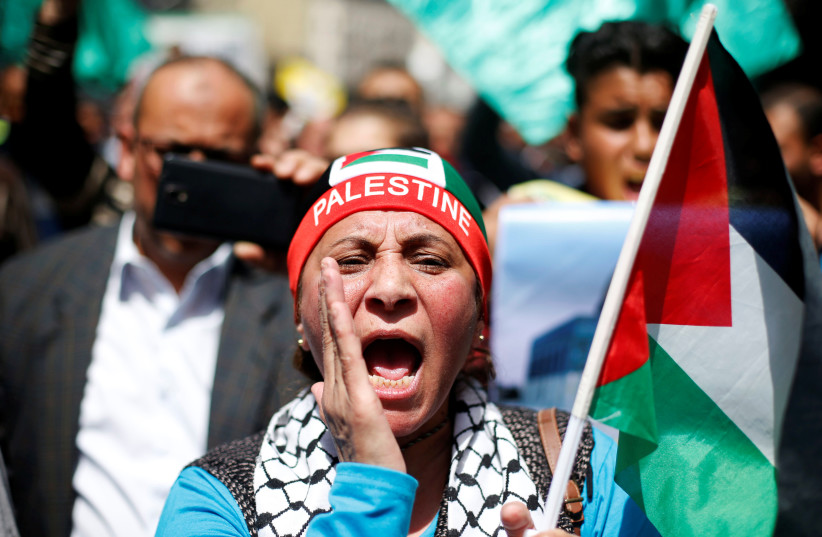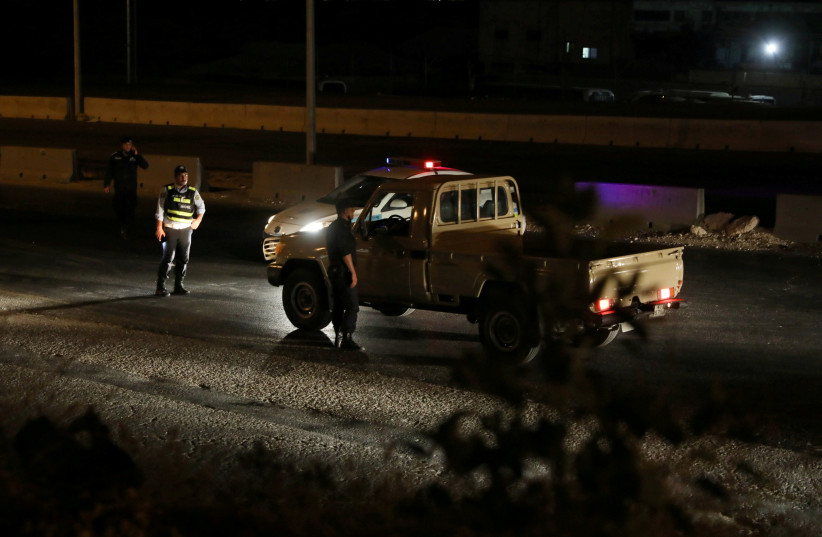Amman might be trying to get Arab citizens who usually boycott Israeli elections to vote on November 1, analyst says.

Jordan, a major non-NATO ally of the United States, appears to be taking steps to improve its relations with some of the region’s radical Islamists.
It is not clear whether the recent moves are being carried out for temporary tactical reasons or if Amman has made a strategic change in its policy.
As a small, non-oil Middle East kingdom, Jordan’s policy has been largely based on a centralist approach of keeping its bridges open with all elements.
Hassan Abu Hanieh, an expert on political Islam, told The Media Line that Amman has taken a middle-of-the-road position regarding the Muslim Brotherhood.
“Jordan has not followed the Egyptians and the British in officially declaring them a terror organization, nor has the kingdom allowed them to be integrated into the political system the way the Kingdom of Morocco has done,” he said.
But while Amman has had a “soft yet distant” relationship with its domestic Islamists, it has taken a hard-line position regarding Jordanians who were publicly supportive of the Palestinian Hamas movement, which began as an offshoot of the Egyptian Muslim Brotherhood during the First Intifada in December 1987.
“Jordan has not followed the Egyptians and the British in officially declaring them a terror organization, nor has the kingdom allowed them to be integrated into the political system the way the Kingdom of Morocco has done.”
Hassan Abu Hanieh
Khaled Mashaal
Khaled Mashaal, then chairman of the Hamas political bureau, and three other Jordanian citizens who were publicly supporting Hamas were deported in 1999. Mashaal has been allowed to return for one- or two-day visits for family reasons including attending the funerals of his parents.
Last Thursday, Mashaal was again allowed to visit Jordan, this time reportedly so he can visit his parents’ graves.
Mashaal’s visit coincided with overtures that Amman appears to be making to Sheikh Raed Salah, the leader of the hard-line Northern Branch of the Islamic Movement in Israel.
Jordanian journalist Bassam Badarin wrote a report in the London-based, pan-Arab Al-Quds Al-Arabi newspaper saying that Jordanian officials asked him what would be the best way to engage with Salah.
Speaking to The Media Line, Badarin said that the two moves coupled together reflected a gradual warming up by the powers that be in Jordan to the hard-line Islamists in Palestine and Israel.
Despite these moves, prominent Jordanian Muslim Brotherhood figure Zaki Bani Rushaid told The Media Line he was doubtful that Jordanian authorities had made any major change in their thinking.

More time was needed to ascertain if this was a strategic decision or a tactical one, he said. “This might be the beginning of something, but we need some more time to be sure,” he added.
The overtures to Salah might be more related to the upcoming election in Israel, he said.
“The Israeli election might be the reason and Jordan doesn’t want [Binyamin] Netanyahu to return to power, and one of the ways to achieve this is to get the Islamists who normally boycott the elections to back away from the boycott calls,” Bani Rushaid said.
The Northern Branch of the Islamic Movement in Israel, based in Umm el-Fahm, split from the Southern Branch, based in Kafr Qasim, in 1996, after the movement decided to participate in the Israeli election.
Israel banned the Northern Branch in November 2015 due to its ties with Hamas and the Muslim Brotherhood.
Wadi Abu Nassar, a Haifa-based analyst, scoffed at the idea of Amman being able to change the position of supporters of Salah.
“The split within the Islamic Movement in Israel happened specifically because of the idea of participating in the Knesset elections,” he noted.
Abu Nassar said that those who think that Salah can be invited to Jordan and everything will be fixed clearly do not understand the political map among Islamists in Israel.
“Raed Salah is not even allowed to exit Israel, by order of the Israeli minister of interior. Jordan’s king is not going to make Raed Salah a hero,” he explained.
Regardless of whether Salah will be photographed with the king or whether the Jordanians will be able to convince him to lower the boycott rhetoric, it is clear that Amman appears to be concerned about the November 1 election in Israel and to have realized that forfeiting the Hamas file to Egypt and Qatar was perhaps a mistake.
Abu Hanieh told The Media Line that the new pragmatism in the Gulf countries appears to have had its effects on Hamas, and therefore Jordan might be willing to revisit its previous decision to abandon communications with the Hamas movement.
Abu Hanieh also believes that if there is a breakthrough in the indirect US-Iran talks on a new nuclear agreement it will also have a considerable influence on the direction Jordan and others have toward the Islamist movements.
“A deal between the US and Iran would allow Hamas to soften its position and this could produce a regional political breakthrough,” he said.
He insists that Tehran does not have a deep-seated ideological problem with Israel.
“Unlike what Israelis think, Iran’s difference with Israel is not ideological but geopolitical,” Abu Hanieh argued. “The pragmatism that is being seen in the Gulf countries, as well as the internal issues in Iran, has its effects on the Islamic Republic of Iran as well,” he said.
Content retrieved from: https://www.jpost.com/middle-east/article-714885.